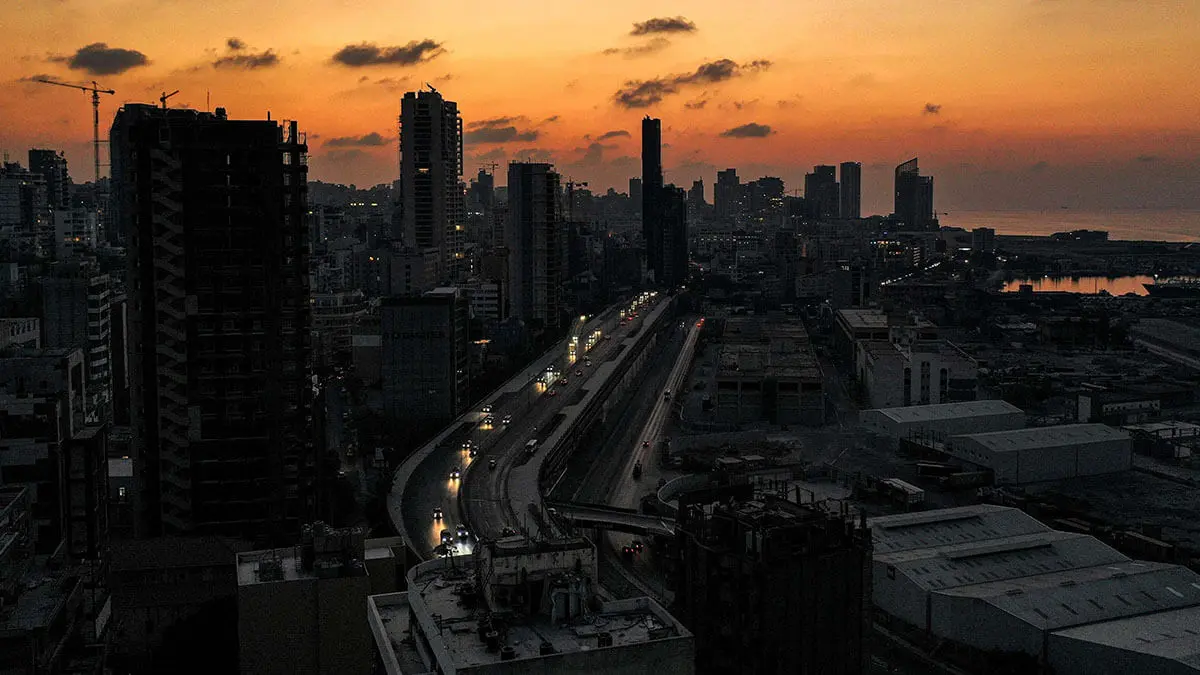Algeria’s conspiracy theories blur realities

The Algerian regime sees all regional changes through the prism of conspiracies against the country, even when it concerns a mere forest fire in a season of summer forest fires sweeping both shores of the Mediterranean.
There is more than one explanation for the decision by the Algerian authorities to deliver a free fuel shipment to Lebanon.
It can be said that Algeria, out of a sense of solidarity with a brotherly Arab people, believed it was the right thing to do to help the Lebanese as they struggle without electricity, especially during this year’s scorching summer.
Electricity was cut off in Lebanon for financial reasons, and the country has been no stranger to power cuts. Simply put, Lebanon could not pay for fuel, so power generation stopped.
Beyond that fact, there was a complex set of factors linked to the regional tensions which have stemmed from Iranian Israeli escalation following the assassination of Hamas political bureau chief Ismail Haniyeh in Tehran and Hezbollah military commander Fuad Shukr in the southern suburbs of Beirut, in two separate operations that are offshoots of the Gaza war.
Algeria wanted to mark its support for Hezbollah without exposing itself to reproach by the West. It is true that generating electricity in Lebanon is the responsibility of the government, but nothing happens in the country without Hezbollah’s say. The militant party, which has harnessed huge capabilities in Lebanon in the service of its project and that of Iran, picks and chooses among government decisions which fit its own purposes and Iran’s regional agenda.
Power outages in Lebanon are very frequent, but what is unusual is to see Algeria suddenly rushing to the country’s rescue. A commendable effort, even if it begs the question: where has Algeria been during the past two decades, if not more, as outages and fuel shortages plagued Lebanon? Algerian officials want to stand up and be counted but without involving their country too much, not just in Lebanon, but in the overall Middle East conflict.
Algerian President Abdelmadjid Tebboune stated in a speech at a recent election rally that he expects Egypt to open the way for the Algerian army to enter Gaza to allow it to build three hospitals treating the wounded among innocent civilians to help the Palestinians in the face the Israeli army’s criminal attacks.
Beside the ambiguities over the role of the army and the reason for planning to build exactly three field hospitals in the enclave, Tebboune’s gesture of support was taken out of its solidarity context by some who sought to interpret it as reflecting Algeria’s readiness to send its army to defend the Palestinians in Gaza. They also claimed that Tebboune was taking a swipe at Egypt for its failure to support Gazans or allow aid to pass through the Rafah border crossing. What is beyond dispute is the strong sympathy of Algerians for the Palestinians. As for how and why the Algerian authorities could seek political dividends from the war in Gaza, that is another matter altogether.
Any senior Algerian official who is entrusted with the task of strategically assessing the magnitude of the changes in the North African and Sahel regions will undoubtedly find it difficult to provide explanations or ideas to decision-makers, whether President Tebboune or the army commanders who hold the reins of power in the country.
President Tebboune’s first term in office began in the wake of a crisis sparked by the illness of his predecessor, President Abdelaziz Bouteflika.
He came to power with the usual considerations surrounding his country’s policies, from its persistent frictions with Morocco, it's clear backing for the Polisario Front as well as the relatively placid relations with major European countries, especially France and Spain, and the seemingly positive state of affairs with the United States, especially in terms of American interest in the security of southern Europe from an African perspective as embodied by the AFRICOM command.
With Tebboune in power, Algeria had a new president. But the ruling class’s stagnant mindset persisted while realities in the region changed tremendously.
The regime saw all the regional changes through the prism of conspiracies against Algeria, even concerning a mere forest fire in a season of summer forest fires on both shores of the Mediterranean, from the far east in Turkey to Morocco (with the latter being accused of starting or fanning the flames).
Conspiracy theories have created many blind spots for Algeria as it failed to notice, for example, the importance of Morocco’s return to the African Union and to monitor the extent of political and diplomatic activity and the scope of security and intelligence cooperation pursued by Rabat in Africa and Europe.
What also did not register with Algiers was the momentum created by the international recognition of Moroccan sovereignty over the Sahara and the growing consensus on the principle of self-rule as a solution for the dispute, starting first from Washington and then expanding to most major European capitals as they aligned themselves with the US position.
Ignoring years of Moroccan diplomatic activity, Algeria naively and simplistically explained the whole process by Morocco’s recognition of Israel. From this perspective, Washington, Paris and Madrid had nothing to do but conspire against Algeria on behalf of Israel and Morocco.
Then came the second shock consisting of a series of successive jolts following the fall of the ruling regimes in several African countries of the Sahel region and the assumption of power there by military officers.
If seen from the perspective of conspiracies, developments could be terribly confusing. Who is conspiring against whom in the region? Is the problem the result of the French Operation Barkhane’s failure in the fight against terrorism? Is it related to the French withdrawal from the Sahel? But what to make of France’s continued coordination with Algeria? Army chief Said Chengriha was in Paris where he was pleased by what he heard from the French. Is it Russia? This is the same Russia, Algeria’s ally, whose warships are stationed in Algeria’s naval bases, while Wagner forces appear to have helped African military officers seize power after removing civilian presidents.
What are the United States doing then, while it conveys assurances from time to time to Algeria through senior visiting American generals in charge of the AFRICOM command?
Is it Turkey, which tells Algeria something during bilateral meetings and later acts differently seeking its own goals and paying little attention to the interests and priorities of the region?
Are Azawad groups following in the footsteps of the Polisario by seeking to establish a Tuareg republic on Algeria’s southern borders, which would create problems for Algeria and other countries of the region? Algeria itself has warned against the risks involved after Libya’s Field Marshal Khalifa Haftar moved his troops to Ghadames, a place too close to the Algeria’s Tuareg-majority city of Debdeb.
With whom is Algeria at odds and whom does it blame for the current turbulence? President Tebboune certainly noticed the problem early on. He appointed a series of new ambassadors whom he tasked with overcoming regional difficulties by primarily reviving traditional Algerian relations with African nations. It thus became clear that the future of any Algerian minister of foreign affairs is linked to his ability to contain successive diplomatic setbacks. Reshuffles have affected more than one minister and official in charge of political, diplomatic and media portfolios. But the result has always been nearly the same: continuing setbacks.
The reason is simple and lies in the fact that the world has changed significantly, and it is no longer possible to explain events by conspiracies nor to level accusations in Israel and those Arab countries cooperating with it. Algeria’s various political and diplomatic reactions have betrayed inconsistency and confusion. For the same “sin” attributed to the Americans, that of recognising Moroccan sovereignty over the Sahara and accepting the autonomy proposal as the solution to the dispute, France is being punished and the ambassador is being recalled while the US position was just forgotten.
The Algerians did not realise the nefarious effects that could result from threatening, for example, to take major punitive economic measures over unproven accusations of responsibility for forest fires or disrupting gas pipeline delivery through Morocco to Spain. How can a country like Italy be confident of the stability of its gas supplies in any current or future projects with Algeria, if the Algerians are prepared to jeopardise their own interests, more than those of Morocco, when they cut off gas supplies to Spain and with it slash a basic source of income for their rentier economy that is dependent on gas and oil sales (or what is left of oil)?
Any Algerian strategic analyst charged with advising his country’s political leadership and army would seek to justify the extensive military manoeuvres in the south, east and west of the country as a demonstration of Algeria’s unwillingness to compromise its security, or allow a separatist Kabyle and Tuareg movements to pursue their goals against the interests of a country where memories of the civil war are still fresh in the minds of people.
However, power and muscle flexing are dangerous when not combined with an understanding of the scope and nature of regional changes. There is no doubt that any analyst will recommend reconsidering policy fundamentals and staying away from conspiracy-based explanations which will not lead to any real solutions. Rather, he may warn that what is even more dangerous is to see the type of justifications offered by Algeria’s leadership for its own crisis, which has nothing to do with Gaza, nor to imagine that a fuel shipment to Lebanon, which will quickly be consumed by power plant boilers, will somehow offer it a solution.
Written By Haitham El-Zobaidi
Haitham El Zobaidi is the Executive Editor of Al Arab Publishing House.

